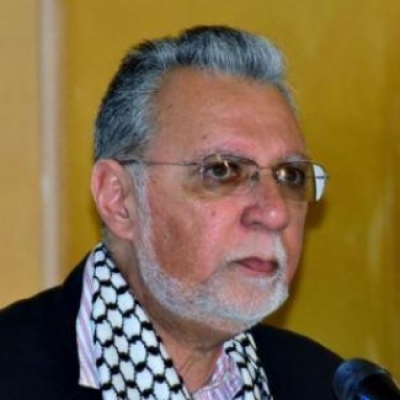



 Firoz Osman
Firoz OsmanStatistics SA released figures that show more than 50% of South Africans, that is, 30 million people, have been condemned to poverty with about 13 million living in extreme poverty.
The slide toward poverty is illustrated by an apocryphal story of a man standing beside a river. Suddenly he notices a baby struggling in the downstream current. He immediately jumps into the river to rescue it. No sooner has he deposited the baby on the shore, than he sees another. The babies come faster and faster. He is so busy rescuing them that he fails to look upstream to see who is throwing them in.
Who or what is responsible for throwing so many people into penury? Has the struggle to bring a better life for South Africans failed? Fortunately, post-apartheid South Africa has not yet reached the spectre of famine haunting other parts of Africa where more than 20 million people face starvation across Somalia, Nigeria, and South Sudan.
The question is: how is it that South Africa, with its advanced infrastructure, gold reserves, and modern economy, has collapsed to this level just 23 years after liberation from the oppressive system of apartheid? In fact, how does such a scale of suffering occur on the continent of 1.2 billion people, so rich in mineral wealth and oil and land mass that it can accommodate almost every other continent in the world?
While poverty afflicts many countries and famines are a regular occurrence across the globe, a closer examination of the recurrence of this misery in Africa suggests there is very little natural about it. From the 1950s, African national liberation movements broke the yoke of colonialism and were granted sham independence, but continued to be invisibly looted under private auspices.
South Africans should have had the good fortune to learn from other liberated countries such as Angola, Mozambique, and Zimbabwe and avert the pitfalls that confronted them. Former and current imperial and colonial powers such as France, Britain, the US and Israel, all of whom supported Apartheid South Africa, which prolonged the oppression of its people, use the military-industrial-corporate complex, the IMF, World Bank, and the United Nations to exploit and capture Africa’s resources. African governments have been forced, through structural adjustment programs, to divert funds from agriculture, health, and education into infrastructure projects that benefit the West. Is South Africa headed in the same direction?
A major cause of poverty and famines, however, is corruption, conflict and war. Geographically strategic Somalia has been at war since 1995 with numerous foreign interventions. Famine has been a parallel occurrence. It now faces its third famine in 25 years. South Sudan has half of its population facing starvation even while the country is floating on oil.
Western oil companies in cahoots with corrupt government officials plunder some $140 billion a year of Nigeria’s black gold while nearly two-thirds of its people live on less than $3/day. Yet, Nigeria has the largest, best equipped army in West Africa, benefitting mostly Western military industries. Instead of being wealthy and envy of the world, its cities are filled with homeless children begging for their daily bread.
Just drive through the streets in Johannesburg, Pretoria, Cape Town, and Durban, and one will notice the same spectacle. Tom Burgis in his book The Looting Machine describes a network of anonymous multinationals, corporate inves-tors, and bankers, who strike opaque deals with coup leaders and African elites to drain the continent of its valuable resources, not to mention its extensive human potential.
At independence in 1960, the Democratic Republic of Congo (DRC) was the among the most industrialized countries in all of Africa, second only to South Africa. It has been plundered and ravaged to such an extent that most of its population is devastated by poverty. The same scenario afflicts 14 West African states where France holds $500 billion of the wealth of these countries in its treasury.
African leaders who dare resist the West are killed or become victims of coups. Those who obey these worldwide hegemons are rewarded with security and a lavish lifestyle while their people endure extreme poverty. Corrupt governments are unable to provide their citizens with even the basic essentials of services such as clean drinking water, medical care, electricity, education and basic infrastructure. There is minimal primary health care, schooling, electricity, clean drinking water, and sanitation. Many revolutionary leaders who freed their people from colonialism now rule through the same oppressive structures they overthrew.
Why is it that the diamonds that South Africa produces in its mines are sent to Israel? Why can’t Africans refine their own oil but instead of buying back refined products at exorbitant costs from the West? Why is it that no African country can manufacture a car, train or plane, or even computers, and that these should be imported from Japan, China, Germany, or the USA? And why is it that to fly within the African continent, 80% of the routes are controlled by non-African airlines?
Combating poverty will involve processes of political, economic, cultural, and social change, and eradicating institutional corruption. This requires a paradigm shift, not only manifested in policy changes, but more fundamentally in how Africans think of themseleves. A higher socio-economic order needs to evolve whereby wealth is deployed to meet human needs and not political leaders’ greed. This also requires a significant change in the mindset of those who own, control, and manage corporations and businesses. We will never stop rescuing babies from the river until we hold accountable those responsible for throwing them in.
Dr. Firoz Osman is an Executive Member of Media Review Network, an advocacy group based in Johannesburg.
